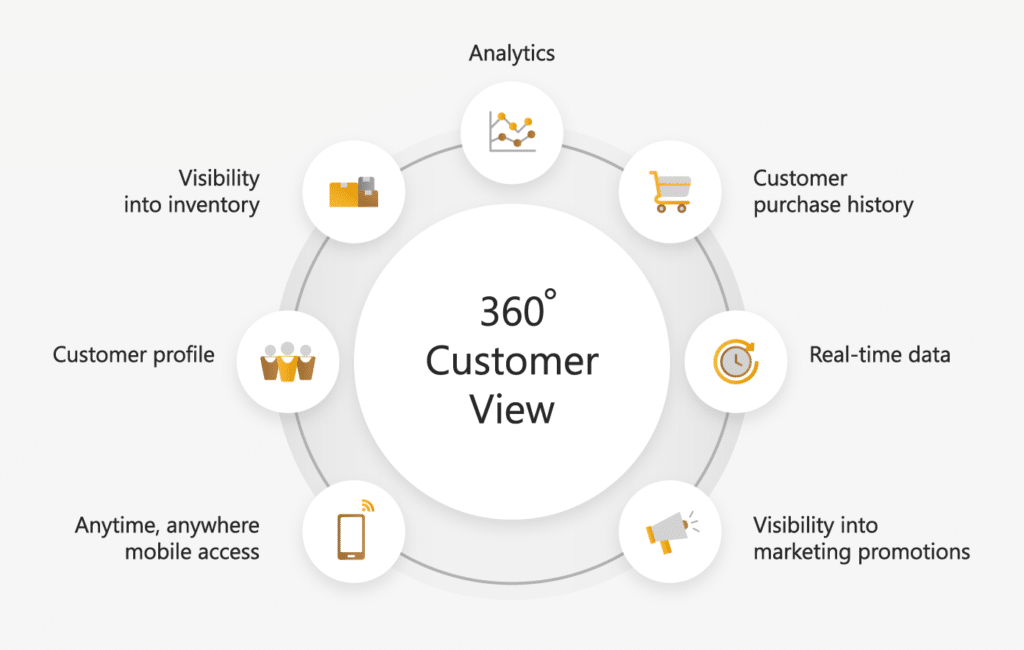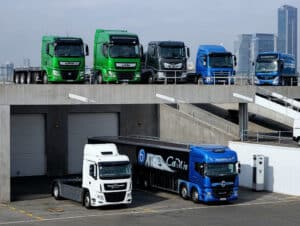The heavy equipment industry is an important economic sector, but it is facing rising global competition. As we look beyond 2023, we are new emerging trends, from the increased use of digital tools to changes in purchasing patterns, and businesses are actively seeking methods to evolve, survive, and succeed in this ever-demanding environment. To capitalize on these opportunities and meet the demands of a new generation of tech-savvy owners, companies are moving away from their Excel spreadsheets and QuickBooks-based systems in favor of cloud-based technology that provides accurate data and quicker turnaround across dealerships and service centers in all locations.
We first explore some of the growing trends in the equipment industry:

- Investing in complete technology stacks to accommodate growing product portfolios and become less reliant on external sources
- Servitization/ rental is becoming an ever-significant source of income and customer loyalty fueled by good customer experience and quality of service.
- Adopting hyper-personalized marketing strategies powered by data and analytics to influence renting/ purchasing
- Aligning Artificial Intelligence (AI) with marketing and sales to improve targeting efforts and optimize the sales pipeline.
Whether acquiring new customers or prioritizing recurring revenue streams, equipment companies must change to more data-driven, unified platforms to align with their Customer Experience Management (CXM) strategy. The good news is that an integrated ERP-CRM platform can be employed with the right technology to power a larger CXM goal.
Both CRM and ERP, at their core, provide powerful platforms to monitor and manage company operations and increase revenue based on historical and real-time data analysis. However, while these systems work well independently, separate ERP and CRM systems remain siloed, with different structures that make monitoring business performance hard. If data integrity in these systems is compromised, or if communication between systems is ineffective, day-to-day business operations can be threatened, and accurate analytics called into question.
An integration that makes sense

Businesses must first recognize that implementing process automation is not as complex as it appears. Fundamentally, Dynamics 365 integrates ERP and CRM primarily because they are built on a common data model and common data services. Fields such as accounts, contacts, products, sales proposals, sales orders, and invoices are synchronized between the two systems. This link allows for the simultaneous execution of transactional scenarios, including sales and marketing activities in the Sales Module and orders fulfillment using Inventory Management.
Artificial Intelligence (AI), Machine Learning (ML), and in-built analytics make data synchronization even more powerful, as they allow for the automation of time-sensitive, mission-critical operations to provide real-time reports that can guide corrective actions.
Having implemented successful Customer Experience Management (CXM) for equipment businesses globally, Annata understands that the customer’s journey isn’t linear. Data that enables superior customer service, efficient inventory management, and maintenance procedures are critical to the health and vitality of the business. For instance, if a customer’s equipment is predicted to malfunction because of past service and parts failure history, a recommendation can be made to replace it instead of investing time and resources. Of course, access to customers’ current and historical data is necessary for your marketing, sales, and customer support teams to take advantage of this opportunity.
Let’s explore the top four reasons why integrated CRM and ERP should be high on your priority list.
360° Customer View and Real-time data visibility

Because CRM systems place all customer details at sales and customer support reps fingertips, employees can tailor a sales or service experience to those details. These would include if a prospect or customer is seeking a specific type of equipment, has a particular budget, or prefers certain forms of communication over others (emails over phone calls, for example). With this information, sales, and service professionals can create a unique experience for this customer. Not only does attention to these details make customers feel better about purchasing, but it also cultivates customer retention and loyalty and encourages them to recommend your dealership to others.
Empower your sales and customer-facing reps with the right technology

Improved response time to every customer interaction should be a top CXM priority, and your customers should not have to wait to talk to representatives to get the information they want. Day-to-day activities such as equipment bookings, document submissions, financial transactions, warranty claims, and inquiries can easily be managed and tracked quickly and accurately. Your CRM should be set up as a central sales tool, imbued with ML and AI-powered guidance and alerts to facilitate quick responses to customer requests at any sales cycle stage. As a result, every team member will be better prepared for any query and will see all conversations to help them manage issues.
Winning sales, promotions & after-sales strategy

Effective delivery and after-sales services are as essential to an equipment company as closing a new deal. Integrating ERP-CRM helps to provide your customers with timely deliveries, support, and issue resolution.
- Identifying & resolving issues: Your business can create a ticketing system for monitoring, updating, and resolving problems. This way, every interaction is recorded and addressed, ensuring your service agents have quick access to a customer’s historical data to address customer needs, resulting in improved CXM.
- Positioning your dealership as their trusted partner: Empower customers by helping them better understand the performance of equipment. Having visibility on their customers’ asset details will allow field engineers to provide relevant documents or direct them to resources so they can be self-sufficient in troubleshooting their equipment before calling to report a problem. In addition, a high first-time fix rate and low customer churn will result in higher customer loyalty and better relationships.
- Get better at targeting: Data intelligence pushed to a ‘single source of truth’ can make your promotions more meaningful and compelling for your customers with highly personalized recommendations and alerts. When you incorporate customer interests into your communications, businesses can ensure that they’re homing in on the most promising market segments effectively for the most profitable results.
Fuel Comprehensive Insights

What is critical to the design of an integrated ERP – CRM system is that every department works with the same set of data, such as information on equipment location, orders, rentals, payments, and pricing, in real-time. This enables organizations to incorporate best practices for frontend and backend operations addressing end-to-end business processes, such as quote-to-cash, creating orders, and critical financial transactions. Every department gets a complete view of trends and behaviors relevant to them and alerts on key indicators customizable to their teams, creating a more agile and proactive workforce.
Accelerating customer engagement with annata365
Built with equipment businesses in mind, annata365’s industry-specific applications drive your sales process from end to end, so all your customer activity, transactions, and related data are accessed in one centralized platform. With a better understanding of your value chain, sales, and customer journey, your teams get a complete and comprehensive view of crucial data; your ERP-CRM integration ensures your CXM increases loyalty and acquisition targets for new customers can be readily met.
Talk to us and understand how your equipment business can be optimized through our end-to-end solutions so your teams can start operating as a whole rather than in silos through effective ERP-CRM integrations.












